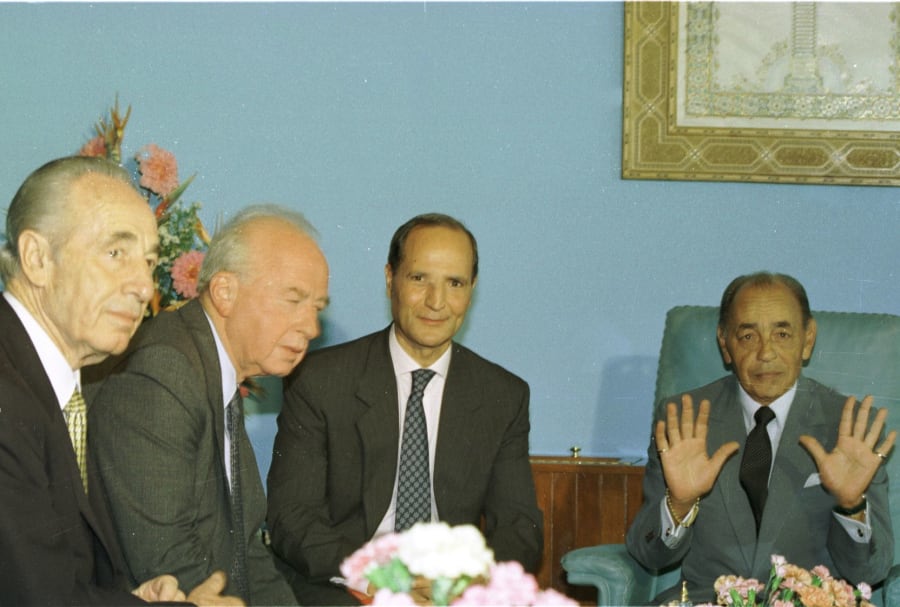Morocco and Israel: A tale of a long and secret friendship
The complex Moroccan-Israeli relationship encompasses diplomatic, economic, security and even personal dimensions

The relationship between Morocco and Israel is a tale of a complex secret friendship that only became public with the recent normalization agreement.
The friendship began in the late 1950s, almost two decades before the United Arab Emirates and Bahrain gained their independence from the United Kingdom.
“Morocco and Israel have been on the same side geopolitically for decades,” said Bruce Maddy-Weitzman, associate professor in Middle Eastern and African history at Tel Aviv University and senior researcher at the university’s Moshe Dayan Center for Middle Eastern and African Studies.
The complex Moroccan-Israeli relationship encompasses diplomatic, economic, security and even personal dimensions. In the 1960s, the Israeli intelligence agency Mossad reportedly helped Morocco to expose and eliminate the Moroccan opposition leader Mehdi Ben Barka who was plotting to overthrow the Moroccan king. Jerusalem also assisted Morocco with securing U.S. weaponry for its military. In return, Morocco enabled the mass emigration of Moroccan Jews and reportedly helped Israel win the Six-Day War by allowing Mossad to bug private conversations of Arab League leaders.
In addition, Morocco tried – unsuccessfully – to help Mossad assassinate Osama Bin Laden before the Sept. 11 terror attacks in New York.
The timing of the normalization agreement was no coincidence. A top foreign policy goal for the Moroccan government has been international recognition of Morocco’s territorial claim to the disputed neighboring Western Sahara. From Morocco’s perspective, a rare window of opportunity arose with U.S. President Donald Trump who was willing to recognize Morocco’s claims to Western Sahara in exchange for formalizing the North African country’s covert ties with the Jewish state. The deal gave Morocco a legitimate cover to formalize its already close ties with Jerusalem. At the same time, Morocco’s pragmatic King Mohammed VI realized that it was highly unlikely that a Joe Biden administration would recognize Morocco’s claims to Western Sahara or offer him a better deal.
Furthermore, like Israel and the Gulf States, Morocco feels threatened by the Iranian regime. Despite being located far from the center of political tensions in the Middle East, Iran has tried to destabilize Morocco and other pro-Western governments in Africa as part of Tehran’s aggressive imperial ambitions in the Middle East and beyond.
The Iranian-backed Shiite terrorist organization Hezbollah has reportedly supported the anti-Moroccan Polisario separatist organization in Western Sahara. As a result, Morocco decided to sever ties with Iran in 2018, thereby bringing it firmly into the anti-Tehran, anti-Hezbollah alliance of the Gulf and Israel.
A historic indigenous Jewish community in Morocco and hundreds of thousands of Israelis of Moroccan descent form a strong and natural cultural bridge between Morocco and Israel. At least 50,000 Israelis travel to Morocco every year. With formalized ties and planned direct flights, Morocco’s tourism industry expects to benefit from a dramatic increase in tourism from Israel.
From Israel’s perspective, Morocco is an important Arab country and a strategic gateway to North Africa. While Israelis have travelled to Morocco for years, the newly formalized ties and expected direct flights between Israel and Morocco will greatly facilitate Israeli business and private travels in Africa. The peace deal between Morocco and Israel is expected to boost economic ties between the two countries.
All of these aspects – the shared threat from Iran and Hezbollah, a pro-Western outlook, strong cultural ties, a pragmatic focus on economic and technological cooperation and Trump’s Western Sahara offer - eventually convinced Morocco’s government to bring its long and covert relations with the Jewish state into the open.

The All Israel News Staff is a team of journalists in Israel.














